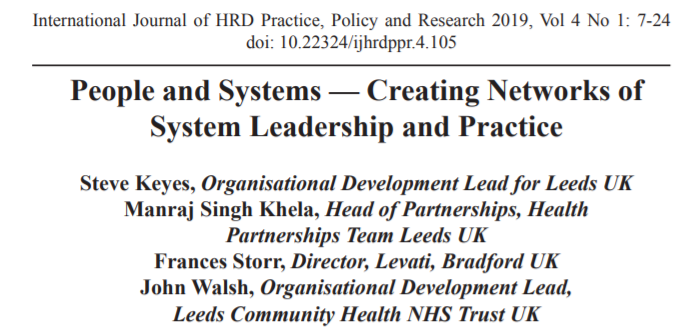
How to boost your group’s creativity
Examples to encourage success
In organisations, the group is the work engine that gets things done. All ideas – whether generated by individuals or by teams, groups are the tool that refines, develops and delivers.
So getting it right is essential not only to efficiency, but to effectiveness and adherence to original purpose.
However, while groups of human beings are potentially extremely powerful they are notoriously tricky to deal with. Right now, we see that many of our clients are aware of the importance of integrating the various parts of their organisations, and are gathering large groups of the leadership levels together. And here’s the thing: whatever challenges are present in small groups are magnified in these larger groups of people. Unless of course the purpose is just to sit them down and tell them things.
In which case you could have sent an email.
To avoid that, help is at hand. We have filtered some of the best writing for you from people who really know how design groups using the underlying principles you can use to get the best out of yours. These are three excellent examples:
Future Search
Marvin Weisbord and Sandra Janoff
What part did you all play in getting here? Shift the focus from “who do we blame” to “we are all responsible for success”. A philosophy for creating significant dialogue in a short space of time, ideal if you have something to deliver in a tight timeframe.
Open Space Technology
A user’s guide by Harrison Owen
No clear answer and lots of questions? This is for you. Discovering that the best bits about his conference were the coffee breakout conversations. So he made the coffee breaks the conference. A book full of practical help for meeting and group organisers.
World Café
Shaping our futures through conversations that matter. Juanita Brown and David Isaacs
We frequently hear people say they have “done a World Café” when what they have done is lifted one element of it. That is like saying you made an Indian meal because you used some chilli. At the same time Brown and Isaac’s book is full of ideas and design principles that can transform many meetings, whether or not you do a full World Café, but once you’ve read the whole process, you’ll want to include it in your thinking.
Three approaches, all with great insights and useful, usable applications for people who want to make things happen. Now.
Find out more about Levati and our approach – and how we can help you succeed individually and as an organisation – at our website page on “Interesting Stuff”, where you’ll find more hints and tips like the above – https://www.levati.co.uk/interesting-stuff/
Please remember to like and follow us on LinkedIn, Facebook and Twitter for the lasts industry news and comment.
David, Frances, and the Levati Team

